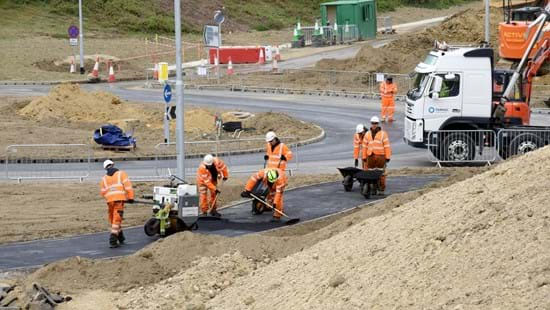National Highways has announced that all Tier 1 contractors and Tier 2 sub-contractors will become automatic beneficiaries of project bank accounts (PBAs) on new contracts.
PBAs were first introduced in 2012 to ensure that payments to suppliers are held in trust in the event of a project’s lead contractor becoming insolvent. Sources at National Highways told Highways they were very effective in the wake of the Carillion collapse in 2018.
National Highways said that payments are made down to Tier 2 level in 18 days on average, 'well ahead of construction industry norms’.
Head of cost intelligence Lloyd Biddell said: ‘We have been using project bank accounts for over a decade and they have proven a great benefit to many of our suppliers. The current opt-in process can make the process daunting or confusing for our smallest suppliers, who are often the ones most likely to benefit from them.
‘We are now making it even easier by automatically including them on project bank accounts unless they choose to opt out. This is a significant and game changing development and we believe could even be a world first for project bank accounts.’

Payment campaigner Professor Rudi Klein said: ‘PBAs are the most effective mechanism for improving payment security. National Highways’ achievement in ensuring 18-days payments to its supply chains is now providing a massive boost for SMEs currently facing unprecedented cost pressures.
'If you’re involved in a public sector contract and not using PBAs, what’s stopping you?'
National Highways said that historically around 80% of tier 2 contractors have signed up, with over 2,000 applications processed by National Highways each year and over 50 such accounts active at any one time.
The remaining 20% are usually very small suppliers that provide limited supply or are unsure of the benefits. Under the new plans, they will be signed up unless they specifically request to opt out.
This will make the signing up process easier and better protect suppliers against further lead contractor insolvencies, National Highways said.





